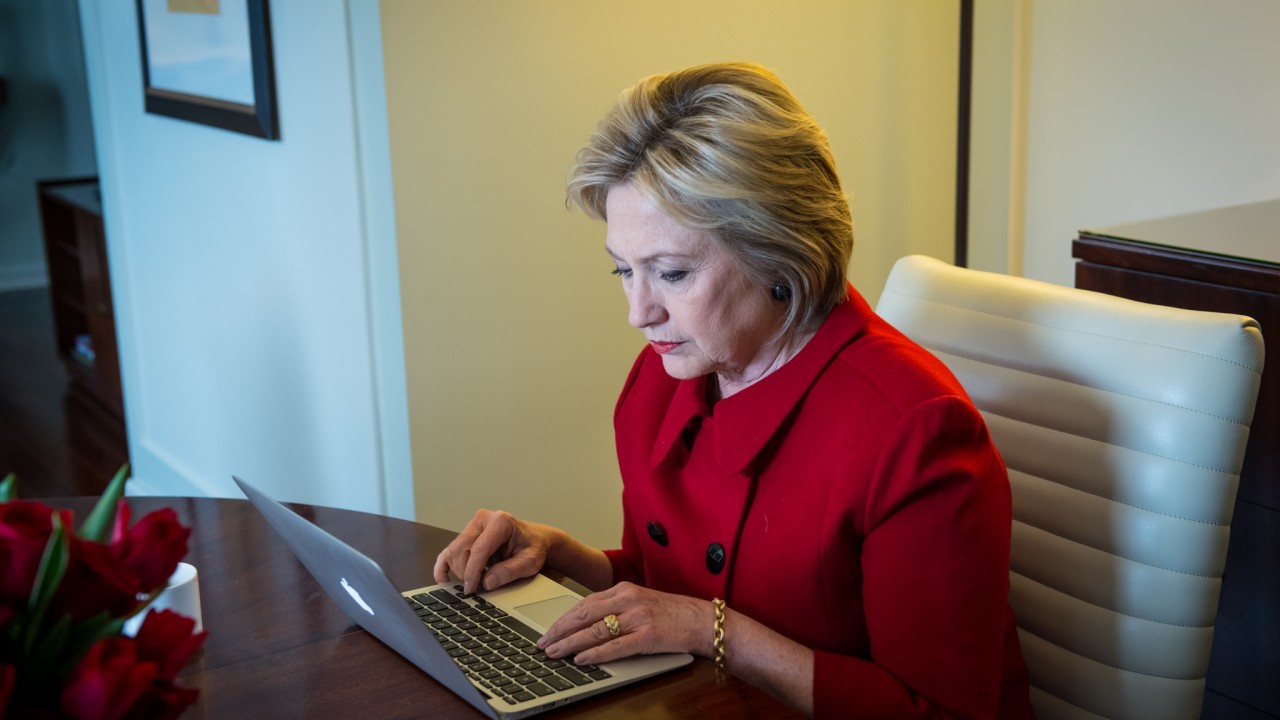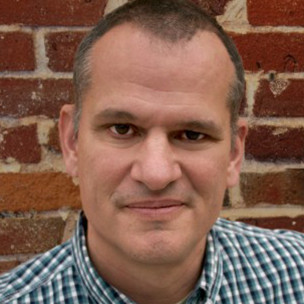
Hillary Clinton types on her keyboard during a Reddit chat in Detroit, MI on March 6, 2016. (Photo courtesy of Hillary for America on Flickr)
What has the Internet done for presidential candidates lately?
— Tim Karr, Free Press
In a recent Nation article, civic technology advocate Micah Sifry heralds the Clinton and Sanders campaigns for using the network to organize potential voters in a way “that has never existed before in American politics.” Leveraging the ubiquity of smartphones and Facebook accounts, they’ve managed to reach millions of people outside traditional politics.
Vox’s Timothy B. Lee credits the Internet for disrupting establishment politics and giving rise to outsider candidates like Sen. Sanders and Donald Trump. Trump’s success “was aided as much by his popularity on cable television as on social media,“ writes Lee. But it’s the candidates’ use of direct-to-voter platforms like Twitter that is “only going to accelerate in the next few elections.”
That’s something. The Internet has revolutionized the ways presidential candidates connect with potential voters. But what have the presidential candidates done in exchange to protect the network that’s become essential to their efforts?
Not much, according to the Free Press Action Fund’s 2016 Internet Voter Guide, which tracks the candidates’ positions on the most pressing Internet issues of the day, like Net neutrality, privacy and the high cost of Internet access.
It’s one thing for candidates to use the Internet to help mobilize their base. But it’s not enough, unless they also recognize that protecting an open, secure and affordable Internet is essential to their own best interests, and to the future of democracy.
According to the Guide, expanding access to the Internet — at a time when more than 34 million Americans lack truly high-speed Internet at home — doesn’t factor in the policy platforms of most of the candidates.
Sen. Ted Cruz and Donald Trump have been silent on the issue, and Gov. John Kasich has suggested that consumers are to blame for high broadband prices. In the Republican field, only Sen. Marco Rubio, who dropped out of the race last Tuesday night, backed legislation to expand affordable Wi-Fi deployment and further use of unlicensed spectrum for Internet access.
The Clinton and Sanders campaigns have made proposals to expand access and make connections more affordable to everyone, but are light on specifics.
No candidate, Democrat or Republican, has supported strong, pro-consumer encryption measures. Cruz, Rubio and Trump have all challenged Apple’s right to protect the security of its users from government snooping, and both Democratic candidates vaguely advocated for the FBI and Apple to work together for a solution.
Yet securing our phones is something digital rights advocates are passionate about. Last month, smartphone users gathered in more than 25 cities across the country to protest a court order demanding that Apple assist the FBI in breaking into an iPhone.
Cruz and Trump each oppose the Net Neutrality protections that millions of Americans fought for. Cruz recently signed on to legislation that would repeal the Federal Communications Commission’s open Internet rules — joining former Republican contender Marco Rubio as a cosponsor of the bill.
The Republican opposition to the open Internet is baffling when you line it up against the opinions of their GOP base. According to polling in 2014 and 2015, a vast majority of those who identify as Republican voters support Net neutrality protections. To their credit, both Democratic candidates have advocated for enforcing the Net neutrality rules.
The frequent disconnect between campaigns’ use of the Internet and candidates’ positions on Internet rights is a problem.
Internet voters are a growing constituency with a track record of political action. They are small-business owners who want to reach a larger market, parents and educators fighting for children who don’t have the Internet access they need to do their homework, and people who are struggling to stay connected, apply for jobs online and fully participate in the political process.
They came out by the millions in 2012 to defeat legislation — the ill-fated PIPA and SOPA bills — that would have blacked out large tracts of Internet content without due process. They formed a diverse coalition of online privacy advocates in the wake of Edward Snowden’s 2013 revelations. And in 2015, more than 4 million people pushed the FCC to turn against the influential phone and cable lobby and pass strong Net Neutrality protections.
Candidates ignore Internet voters and the issues we care about at their peril. While they may embrace the network as a catalyst for small “d” democratic organizing, they can’t work against the interests of those who are fighting to keep it open and available to everyone.




